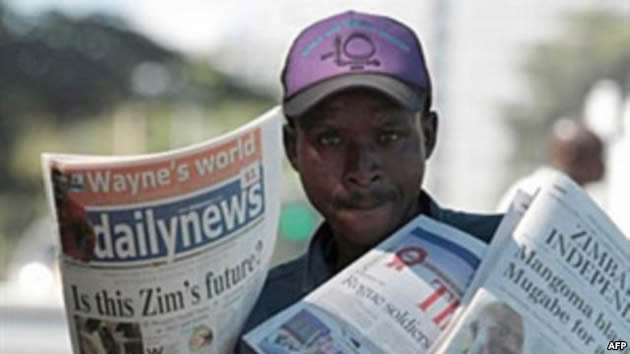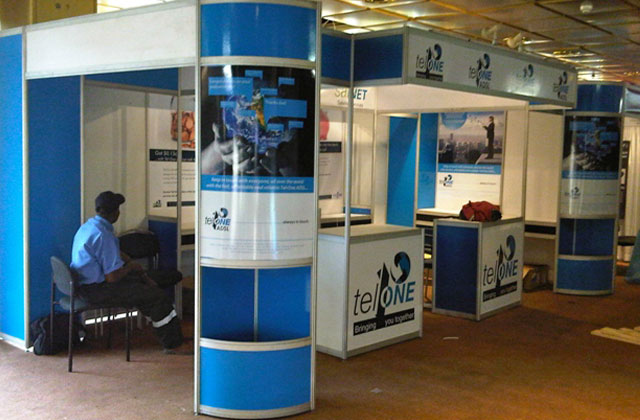Privatising the media agenda


It would appear the privately-owned media are naturally owned, controlled or sponsored by anti-zanu-pf protagonists who enjoy poking the party as they try their hands on fiction writing. RIGHT: Dr Ibbo Mandaza
Takunda Maodza Assistant News Editor
ON Sunday last week, Presidential spokesperson and Media, Information and Broadcasting Services Secretary Mr George Charamba issued a stern warning to the privately-owned media over their growing tendency to cook up stories on alleged Zanu-PF factionalism.
The admonition reminded me of an incident a few years ago when I entered the editor’s office around 6pm at the now defunct Daily Mirror. Dr Ibbotson Joseph Mandaza owned the Daily Mirror under the Zimbabwe Mirror Newspapers Group. The editor was on the phone, sweating. He was reading the lead story for publication the following day to someone over the phone. The other end thundered instructions.
I later established it was the proprietor himself – Dr Mandaza – to whom the story was being read. With utmost respect, I staggered out of the editor’s office kindly closing the door after me. The remarks by Mr Charamba saw me reminiscing on this incident. It now makes sense to me why the editor was being reduced to a news anchor every evening by Dr Mandaza.
The subject matter is the political economy. To what extent does the political economy determine what we read in newspapers and the media at large?
Of course, political economy is a huge animal, but my parameter is ownership.
Understanding this aspect will help unpack why the privately-owned media appear to have dedicated their existence to provoking Zanu-PF and its leadership, a reason why the Press secretary has his finger on the trigger today.
I made a deliberate anecdote on the Daily Mirror’s “editor and proprietor evening ritual” to create understanding as to what may have bewitched the privately-owned media to enrage Mr Charamba. He is not easily irritated by texts.
I deliver my verdict for I am the jury today. The political economy is guilty. I impose community service on the editors “manning” the gates at the privately owned media. But what animal is the political economy? I hope this will not sound like a lecture. Media scholars like Peter Golding and Graham Murdock complexly define political economy as the interplay between the symbolic and economic dimensions of public communication.
This interchange shows how different ways of financing and organising cultural production have traceable consequences for the range of discourses we find in the media packaged as news.
It relates the outcome of the news process directly to the economic structure of the news organisation.
Critical political economists believe media owners’ influence on journalists is inherent and communicable. Journalists are, willingly or unwillingly, socialised into believing in “what the boss believes in and disapproving of what the boss disapproves of”. Incompatibility with the media owner’s beliefs and political-socio-economic standing is a licence to joblessness
The political economic formation of the media is eternally married to media content. This is reinforced by Golding and Murdock when they correctly posit that owners determine the editorial line and cultural stance of their media houses. Journalists, in particular editors who are the gatekeepers, relay interpretive frameworks consonant with the interest of proprietors. The media become colossal expressions of proprietors. When it comes to generation of texts, they think like the proprietor.
By this, I am not ignoring the various other factors that influence media content. These are inclusive of the effect of news sources on media content, a journalist’s socio-political standing, and advertising, just to pick a few. The influence of sources on media content is confirmed by James Schlesinger. He argues what emerges from the news production process “is a view of the social order determined by sources used and the position advocated”.
Were it not an insurmountable task, it would be interesting to establish who in Zanu-PF is over feeding the privately owned media with information, true or false, relating to the goings on in the party. It would be interesting too establishing the agenda driven by the sources, if at all they exist. This is not a call for witch-hunting. No. Rather, my point is that powerful sources manipulate the media into pursuing certain agendas. They resultantly have a deterministic influence on media content.
It is my argument that media content in Zimbabwe is understandable if examined from the viewpoint of who owns what? Is the proprietor Zanu-PF, MDC, People First or People Last? It would appear the privately owned media alluded to by Mr Charamba are naturally owned, controlled or sponsored by Zanu-PF protagonists who enjoy poking the party as they try their hands on fiction writing.
It is the art of propaganda to repeat itself! Zimbabweans, therefore, shall forever see screaming headlines about Zanu-PF this, Zanu-PF that, as long as “private” media proprietors see such ghosts in Zanu-PF. As long too as the media owners are from a different political oven.
That is why I earlier deliberately poked editors at privately owned media for “manning newsroom gates”. I meant they are mere messengers of the proprietor whose agenda they religiously pursue even when they belong to a different political school. For why would, for example, Dr Mandaza subject his able editor to reading lessons every evening as if doubting the senior scribe’s hand at the English language?
Why would he do that when the newspaper would be delivered at his doorstep first thing tomorrow morning sodden with ink? Critical political economists in cultural studies are of the view, as do I, that media houses are but mere voices of their owners. The texts we read in the privately owned media – no matter how bizarre and fictitious – are but a reflection of the proprietor’s socio-political apparel.
Now I know too why Dr Mandaza would at times be quoted as a source in his publications – Daily Mirror and Sunday Mirror. He often planted his views in the newspapers. As to what agenda he was pushing, dear Lord in Heaven knows.
Lest I forget, it is the political economy that requires careful examination in this country and a corrective medical dose prescribed.








Comments